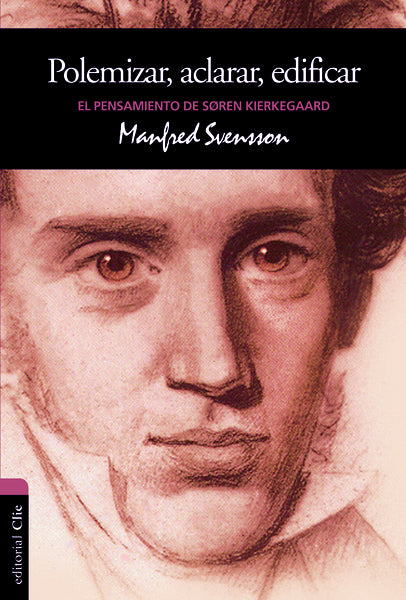Synopsis: Considered the father of existentialism and a driving force behind a new concept of the Christian faith based on individual commitment, Denmark’s Soren Kierkegaard (1813-1855), the well-known philosopher, theologian, and prolific author, had a crucial influence on philosophical thought and continues to influence theology today.
Considered by some the father of existentialism and by others the driving force behind a new concept of Christian faith based on individual commitment, Denmark’s Soren Kierkegaard, a philosopher, theologian and prolific author, had a crucial impact on philosophical thought and continues to influence theology today.
He was born in Copenhagen on May 15, 1813, and the 200th anniversary of his birth will be celebrated in 2013. His father, a wealthy merchant, practiced a strict Lutheranism and lived in constant torment, obsessed with fears and concepts of his own sinfulness and guilt. This had a profound influence on the character and thought of his son. Kierkegaard, while studying theology and philosophy at the University of Copenhagen, was introduced to Hegelian philosophy, and reacted strongly against it. Yet he was persuaded to abandon religious practices and for a short time adopted somewhat frenetic social life. After the death of his father in 1838, he decided to resume his theology studies, and in 1840 he became engaged to Regine Olsen, a 17-year-old girl; but he soon became aware of his own inability to maintain a relationship in married life due to his melancholy nature and his philosophical vocation. Convinced that he also did not want to be a pastor, he used the inheritance received from his father to devote himself full-time to philosophical thought and to writing more than twenty books.
In these he criticizes Denmark’s Lutheran church, which he believed was frivolous and rationalistic, equating the exercise of faith with social customs, and defending a Christianity that, being conscious of sin, dares to live before God without the props of community. The Christian is one who despairs of social conventions, one who seeks God from the depths of his existence. To him, being a Christian is not the following of a belief or custom, but a Person, a way of life guided by faith in a living Christ, which makes possible a “contemporariness” with Him.
At first, the influence of Kierkegaard’s thought and his clamoring for a more authentic Christianity was limited to Scandinavia and German-speaking Europe, where his work had a strong impact on Protestant theology and on writers such as Franz Kafka. But at the start of the 20th century, with the resurgence of existentialism as a general movement in Europe, his works were translated extensively and he became recognized as one of the greats in the history of thought and one of the key figures of modern culture.
The current work by Manfred Svensson on the thought of Soren Kierkegaard, written and published on the occasion of the second centenary of his birth, desires to emphasize the importance of Kierkegaard’s thought for new generations of the 21st century, recalling the words of Jaspers: “Perhaps anyone who does not open himself to Kierkegaard […] today remains poor and unconscious.” At the same time, this book attempts to exalt the value of this debate for the Christian living today who is determined to make headway and affirm his faith in the midst of a society bound by materialism and secularism, thus echoing the words of the Tyrolean poet Carl Dallago, who wrote: “I thought that I had left Christianity behind, but now I see it in front of me. The one who put it there was Kierkegaard.”


